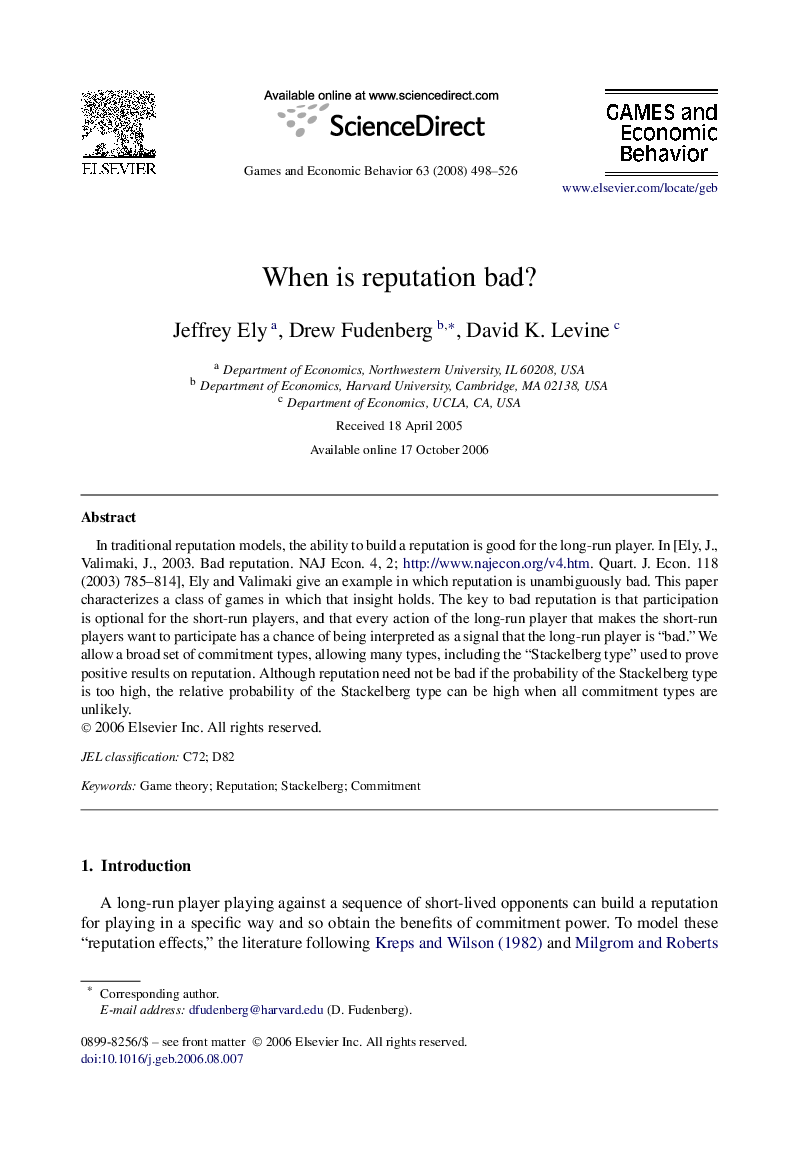| Article ID | Journal | Published Year | Pages | File Type |
|---|---|---|---|---|
| 5072790 | Games and Economic Behavior | 2008 | 29 Pages |
In traditional reputation models, the ability to build a reputation is good for the long-run player. In [Ely, J., Valimaki, J., 2003. Bad reputation. NAJ Econ. 4, 2; http://www.najecon.org/v4.htm. Quart. J. Econ. 118 (2003) 785-814], Ely and Valimaki give an example in which reputation is unambiguously bad. This paper characterizes a class of games in which that insight holds. The key to bad reputation is that participation is optional for the short-run players, and that every action of the long-run player that makes the short-run players want to participate has a chance of being interpreted as a signal that the long-run player is “bad.” We allow a broad set of commitment types, allowing many types, including the “Stackelberg type” used to prove positive results on reputation. Although reputation need not be bad if the probability of the Stackelberg type is too high, the relative probability of the Stackelberg type can be high when all commitment types are unlikely.
